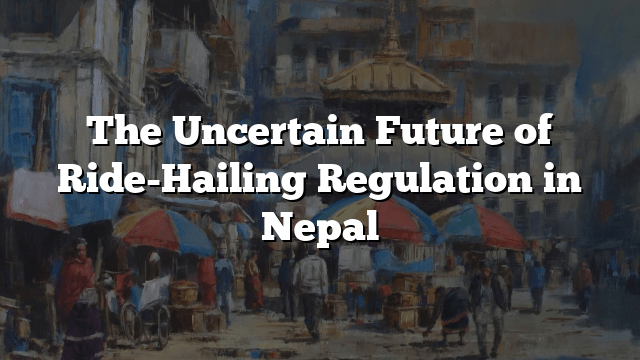
Pathao, a leading app-based transportation and food delivery company, continues its robust expansion across Nepal, marking a significant shift in the country’s transportation landscape. However, regulatory uncertainties pose challenges for competitors, stalling their expansion outside Kathmandu Valley.
Since its inception in 2015, Pathao has rapidly grown, extending its services to 18 cities nationwide, including Chitwan, within six years of operations in Kathmandu Valley. Suraksha Hamal, Pathao Nepal’s Marketing Head, highlighted the increasing demand for accessible and affordable transportation services beyond Kathmandu Valley, signaling a promising market outlook.
“We’re now operational in all seven provinces,” stated Hamal, citing a surge in rider applications and daily rides exceeding 1,000 outside Kathmandu and Chitwan. Pathao’s transparent fare bidding system empowers customers in newly penetrated markets, enhancing user experience and affordability.
While Pathao solidifies its presence in multiple provinces, competitors face regulatory hurdles. Tootle, a once-popular ride-hailing platform, has pivoted to goods deliveries, with no immediate expansion plans. Initially launched in 2017, Tootle faced challenges due to marketing limitations and lack of transparency, paving the way for Pathao’s dominance.
Zapp Services Pvt Ltd, the operator of Tootle, remains reticent about its future plans amid market uncertainties.
Following Pathao’s market dominance, inDrive, a US-based company, entered Nepal’s ride-hailing sector in 2022, focusing on Kathmandu, Pokhara, and Chitwan. Regulatory concerns deter inDrive from immediate expansion, awaiting government guidelines for legal compliance.
“We’re prioritizing our current cities, aiming for sustainable growth,” stated Pavit Nanda Anand, inDrive’s Asia Pacific Communication Lead, underscoring the company’s commitment to local mobility solutions.
While Pathao thrives in Pokhara and Butwal, it aims to expand its services to auto-rickshaws, catering to the popular mode of transport in the Tarai region. Additionally, Pathao plans intercity bookings, facilitating seamless travel across cities.
Despite Pathao’s success, regulatory clarity remains elusive for the ride-hailing sector in Nepal. While the government recognized ride-hailing as a service-oriented industry in 2020, guidelines for fare regulation and operational procedures are pending, hindering sector growth.
Bagmati province’s legalization of ride-hailing in 2022 lacks accompanying guidelines, further complicating regulatory compliance.
Amid regulatory uncertainties, the ride-hailing sector in Nepal awaits decisive government action to foster industry growth and ensure consumer protection.
Related:



